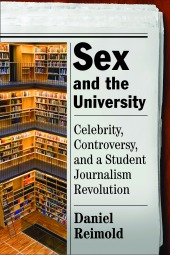The Miscellany News has “entered into the next generation of online journalism,” according to its editor in chief in a recent piece for Inside Higher Ed.
The goal of the online transformation, the EIC wrote, was to shed the stigma of the paper’s online version as an “ugly stepsister” to the print edition:
On our new site, reporters can contribute live blogs, attach videos and other multimedia to their articles, and display high-resolution photography in a way that our print publication never could. Best of all, The Miscellany’s site is flexible, no longer burdened with the stagnant design so common among news sites in the 1990s. We have become one of only a handful of college newspapers in the country . . . to adopt a Web 2.0 approach and craft our site using up-to-date CSS and XML standards.
The site (screenshot above) is especially exciting because it is proof that a Web-friendly, Web-first j-philosophy can exist within smaller student newspapers, a group of publications that have the least amount of resources and assistance enabling them to make the leap to an online news world.










